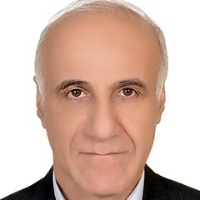Relationship betweeh Health Locus of Control, slip Memory and Physician- Patient relationship with Adherence in Type II Diabetic Patients
One of the important challenges in patient with chronic diseases specially diabetes is adherence to therapy of treatment. While the patients don’t follow the treatment program, They get into critical consequences like relapse of illness, intensification of disability, necessity of emergency and hospitalization. So the present study intended to investigate the relationship between health locus of control, slip memory and physician – patient relationship with aherence to therapy.
To carry out this research, 115 adults with type Π diabetes(men and women) who had referred to Glands clinic of Sina hospital in Tabriz from June to August 2010, completed the following five research questionnaires: demographic information questions, patient – doctor relationship questionnaire(PDRQ-19), General Aherence to therapy Scale(GAS), Prospective and retrospective memory questionnaire(PRMQ), and Multidimensional health locus of control(MHLC). In order to analyze the data, both descriptive and inferred statistics were applied including Pearsons correlation coefficient and multiple regression analysis methods.
The study findings indicated that there exist a positive significant relation between external health locus of control(other- powerful), internal health locus of control and desired physician- patient relationship with adherence to therapy in diabetic patients of type Π. However, results revealed a negative significant relationship between slip memory and adherence to therapy.
The study results proposed that the patients with diabetes type Π, who regard more powerful individuals as responsible for their health like their physician, believe in their own role in control of their health in the second place. Furthermore, they had a desired relationship with their physicians, showed less slip memory, and displayed more adherence to therapy.
-
Design and Pilot Testing of an Intervention for the Management of Overweight/Obesity in Primary School Children (7-8 years old) Through the Primary Health Care System in an Urban Setting in Iran
Saba Narmcheshm, Nasrin Omidvar*, Naser Kalantari, Parisa Amiri, Reza Sobhani, Forouzan Salehi, Amirhossein Yarparvar, , Parisa Naseri
Nutrition & Food Technology Research, Apr-Jun 2024 -
Psychometric Properties of the Persian Version of the Types of Pornography Scale for the Iranian Population
Bahar Dehghanpour Hanzaei, *, Milad Kadkhoda, Fatemeh Sadat Raeisian
Iraninan Psychiatry and Clinical Psychology,



